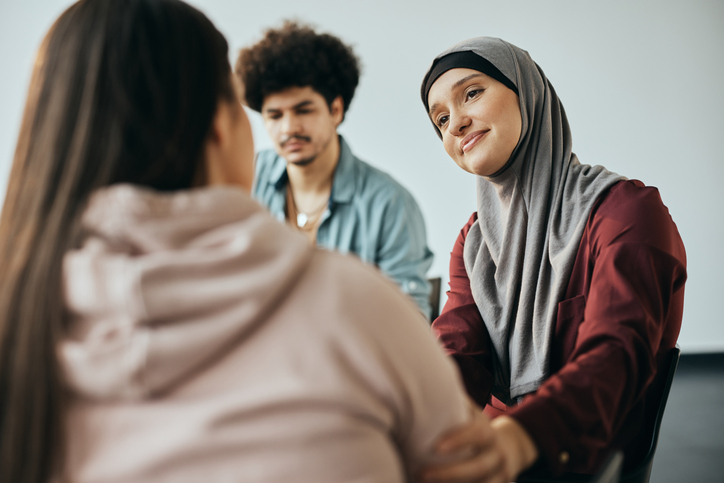Mental health recovery is a phased journey. The journey is much more than clinical treatment, it also involves a high degree of self-management and social support. This article discusses the impact of community involvement and social connections on mental health recovery.
Understanding Mental Health Recovery
Mental health recovery isn’t solely about symptom management; it involves nothing less than rebuilding a fulfilling life. Clinical treatment, self-management, and social support contribute to this process. Understanding the multifaceted nature of recovery is essential for individuals and communities alike.
The Recovery College is an essential part of this process. This is where individuals can reconnect with their community, re-establish their identity beyond diagnosis, and regain a sense of hope and life meaning. Through a carefully crafted blend of adult learning practices and modern personal recovery theory, our courses equip students with the personal, social, academic, and practical life skills essential for leading a full and meaningful life.
The Role of Community Involvement
Community involvement comes in various forms, from volunteering to participating in community events and joining support groups. Research consistently highlights the positive effects of community engagement on mental health, emphasising that a sense of belonging and purpose significantly contributes to recovery. This sense of community can act as a safety net, providing crucial support during challenging times.
Social Connections and Mental Health
Social connections play a pivotal role in mental health. The detrimental effects of social isolation on mental well-being are well-documented, which stresses the importance of building and maintaining relationships. Support from family and friends provides understanding and empathy, creating a nurturing environment for mental health recovery. Social bonds act as a cornerstone, helping individuals weather the storms of mental health challenges.
Community Integration Programs
Efforts to promote community integration include various programs such as housing initiatives, employment support programs, and peer support networks. While these initiatives have demonstrated success, challenges persist in their implementation, highlighting the need for continued advocacy and refinement. As communities evolve, so must the programmes that support mental health recovery.
The CMHRE Plus Service integrates local voluntary support with the existing CMHRE Service, providing specialist assessment, treatment, interventions, and support to facilitate recovery from complex mental health problems.
The Greenwich Mental Health Hub conducts holistic assessments to aid rehabilitation and integration into the local community. It aims to support independence and reablement for people referred by their GP.
Personal Empowerment through Community Integration
Engaging with the community empowers individuals in their recovery journey. Beyond reducing symptoms, community involvement helps build confidence, self-esteem, and a sense of purpose. Acquiring new skills and talents contributes to a more holistic and sustainable recovery. As individuals discover their strengths within the community, they become active participants in their own well-being.
Overcoming Stigma through Community Involvement
Mental health stigma remains a significant barrier to recovery. Community involvement is a powerful tool to challenge and dispel stereotypes, offering real-life examples of individuals overcoming stigma. Educating the community reduces stigma and creates a more supportive environment. By actively engaging in community activities, individuals become ambassadors for mental health, breaking down barriers and nurturing understanding.
In conclusion, community integration and social connections are integral to mental health recovery. The positive impact of community involvement goes beyond reducing symptoms; it empowers individuals, creates a sense of belonging, and challenges societal perceptions. As we advocate for a more supportive and understanding community, embracing community integration becomes not only a personal endeavour but a collective responsibility. Through this collaborative effort, we can truly make strides in mental health recovery.
Bridge Support
Here at Bridge Support, we take pride in offering a range of impactful programs to empower individuals on their mental health recovery journey.
The Greenwich Mental Health Hub
At Bridge Support, we are dedicated to providing comprehensive support that goes beyond the clinical realm, encouraging true empowerment and holistic well-being for those on their mental health recovery journey. Contact us here for more information.

